-
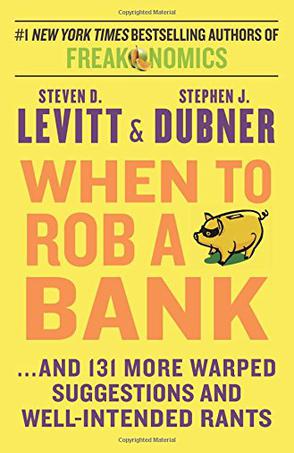
When to Rob a Bank
-
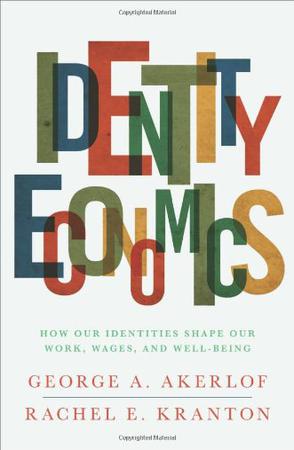
Identity Economics
"Identity Economics" provides an important and compelling new way to understand human behavior, revealing how our identities - and not just economic incentives - influence our decisions. In 1995, economist Rachel Kranton wrote future Nobel Prize-winner George Akerlof a letter insisting that his most recent paper was wrong. Identity, she argued, was the missing element that would help to explain why people - facing the same economic circumstances - would make different choices. This was the beginning of a fourteen-year collaboration - and of "Identity Economics". The authors explain how our conception of who we are and who we want to be may shape our economic lives more than any other factor, affecting how hard we work, and how we learn, spend, and save. Identity economics is a new way to understand people's decisions - at work, at school, and at home. With it, we can better appreciate why incentives like stock options work or don't; why some schools succeed and others don't; why some cities and towns don't invest in their futures - and much, much more. "Identity Economics" bridges a critical gap in the social sciences. It brings identity and norms to economics. People's notions of what is proper, and what is forbidden, and for whom, are fundamental to how hard they work, and how they learn, spend, and save. Thus people's identity - their conception of who they are, and of who they choose to be - may be the most important factor affecting their economic lives. And the limits placed by society on people's identity can also be crucial determinants of their economic well-being. -
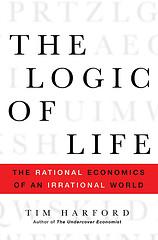
The Logic of Life
http://www.timharford.com/logicoflife/ “Life often seems to defy logic. When a prostitute agrees to unprotected sex, or a teenage criminal embarks on a burglary, or a smoker lights another cigarette, we seem to be a million miles from what we would call rational behaviour. None of this makes sense – or does it? Tim Harford thinks it does. And by weaving stories from locations as diverse as a Las Vegas casino and a Soho speed-date together with insights from an ingenious new breed of economist, he aims to persuade you that we are all, in fact, surprisingly logical. Reading this book, you’ll discover that the unlikeliest of people – racists, drug addicts, revolutionaries and rats – comply with economic logic, always taking account of future costs and benefits, even if they don’t quite realise it. It even explains why your boss is overpaid…” -
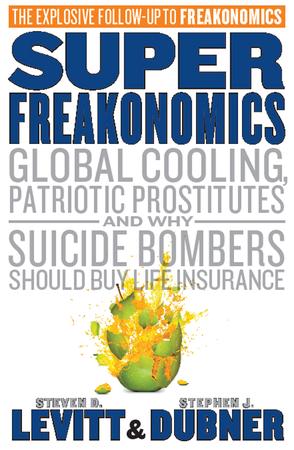
Super Freakonomics
The New York Times best-selling Freakonomics was a worldwide sensation, selling over four million copies in thirty-five languages and changing the way we look at the world. Now, Steven D. Levitt and Stephen J. Dubner return with SuperFreakonomics, and fans and newcomers alike will find that the freakquel is even bolder, funnier, and more surprising than the first. Four years in the making, SuperFreakonomics asks not only the tough questions, but the unexpected ones: What's more dangerous, driving drunk or walking drunk? Why is chemotherapy prescribed so often if it's so ineffective? Can a sex change boost your salary? SuperFreakonomics challenges the way we think all over again, exploring the hidden side of everything with such questions as: How is a street prostitute like a department-store Santa? Why are doctors so bad at washing their hands? How much good do car seats do? What's the best way to catch a terrorist? Did TV cause a rise in crime? What do hurricanes, heart attacks, and highway deaths have in common? Are people hard-wired for altruism or selfishness? Can eating kangaroo save the planet? Which adds more value: a pimp or a Realtor? Levitt and Dubner mix smart thinking and great storytelling like no one else, whether investigating a solution to global warming or explaining why the price of oral sex has fallen so drastically. By examining how people respond to incentives, they show the world for what it really is – good, bad, ugly, and, in the final analysis, super freaky. Freakonomics has been imitated many times over – but only now, with SuperFreakonomics, has it met its match. -
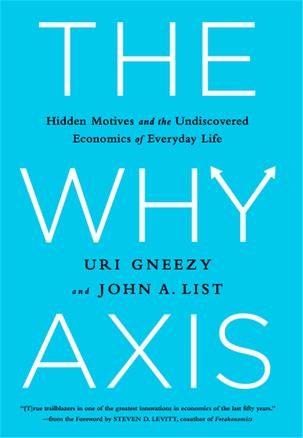
The Why Axis
Based on groundbreaking original research, The Why Axis is a colorful examination of why people do what they do—observed through the lens of incentives that can spur people to achieve. Uri Gneezy and John List are like the anthropologists who spend months in the field studying the people in their native habitats. But in their case they embed themselves in our messy world to try and solve big, difficult problems, such as the gap between rich and poor students and the violence plaguing inner city schools; the real reasons people discriminate; whether women are really less competitive than men; and how to correctly price products and services. Their field experiments in the factories, communities, and shops where real people live, work, and play show how economic incentives can change outcomes. Their results will change the way we both think about and take action on big and little problems, and force us to rely no longer on assumptions, but upon the evidence of what really works. -
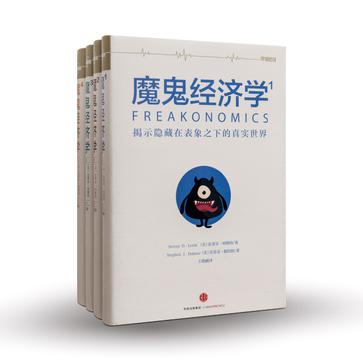
魔鬼经济学(罗辑思维独家定制版)